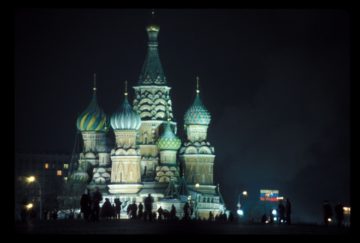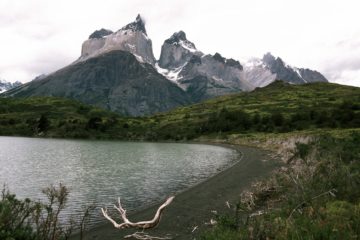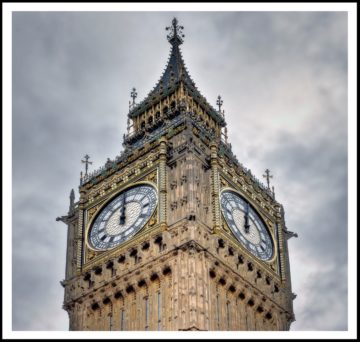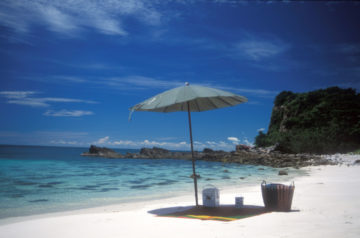by Bill Murray
 2022 is alive, a babe come hale and hollering to join its sisters 2020 and 2021, siblings bound by pandemic. Everybody stood to see off 2022’s older sister 2021, like we all did 2020 before her. Out with the old. Quickly, please.
2022 is alive, a babe come hale and hollering to join its sisters 2020 and 2021, siblings bound by pandemic. Everybody stood to see off 2022’s older sister 2021, like we all did 2020 before her. Out with the old. Quickly, please.
2022 debuts with a striking resemblance to her sisters, just more evolved. So that by now some Americans signal their freedom by avoiding vaccination while others seek freedom by staying indoors. Meanwhile Europeans ban each other, for a moment there the whole world tried to put southern Africans out of mind entirely, and every country tortures its airlines. Hi ho the derry-o a quarantining we will go.
The Die Welt UK correspondent lamented that should she visit her homeland this holiday, she couldn’t even test her way free. Test your way free.
Consider the world in which 2022 will make her mark. Look east from Kyiv and please find Russia issuing un-agree-to-able demands and backing them with the rattling of 100,000 human sabres. It would be utterly incredible if Putin were to start a land war in Europe. But those who claim knowledge of his inner thoughts cite a deep, consistent grievance. Indeed they find it in the public record, in his 5000 word ‘Ukraine is not a real country’ article back last summer.
As far back as 2008, at a NATO-Russia Council meeting in Bucharest, Putin declared to W. Bush, “George, do you realize that Ukraine is not even a state? What is Ukraine? Part of its territory is Eastern Europe but the greater part is a gift from us!”
 That spring of 2008 Putin indicated that if Ukraine were to join NATO Russia “would then tear off Crimea and eastern Ukraine from the rest of the country. Six years later it appeared Russia was doing precisely this” without waiting for that detail about NATO membership.
That spring of 2008 Putin indicated that if Ukraine were to join NATO Russia “would then tear off Crimea and eastern Ukraine from the rest of the country. Six years later it appeared Russia was doing precisely this” without waiting for that detail about NATO membership.
The Russian president has run all that firepower up to the border to declare it is Russia under the gun. A week and a half ago Putin declared “They should understand that we have nowhere further to retreat to. Do they think we’ll just watch idly?” He has run the temperature up to ‘blast furnace’ in eastern Ukraine, a neat trick in the snows of Luhansk and Donetsk.
The neatest scenario has a fiendish audacity: the Russian army advances from the Donbass to the Dnieper River, splitting Ukraine in half, and occupies it’s left bank south to the Black Sea, bypassing and isolating towns along the way that might offer resistance. Consolidating those gains would give the Russians a new, defensible border, the ports of Mariupol and Kherson, contiguity with Crimea, and secure the Sea of Azov.
Could something so audacious be in the cards? Russia occupied Crimea at the conclusion of the 2014 Olympic Games. The 2022 Olympics begin in one month’s time. Welcome to 2022.

Chile dodged a Pinochet-shaped bullet two weeks ago. Defying a last minute show of ill grace by the outgoing president, who shut down big city buses on election day, Chileans definitively declined to elect a baby Bolsanaro in José Antonio Kast.
Kast, son of a lieutenant in the German Nazi army, wasn’t sure if human activity had anything to do with climate change, reckoned he would only comply with international law if he felt like it, and promised to expel immigrants in Chile without judicial review. Toward that end he supported a ditch along the Bolivian border. He (and presumably his wife and nine children) opposed abortion.
He was defeated by 35 year old Gabriel Boric, a former student leader from a Croatian clan in Chile’s far southern Magallanes province whose forebears left Croatia in the late 1800s, at a time when both Chile and Argentina appealed for settlers in sparsely populated Patagonia.
Challenges lie ahead. As unsavory as is Kast, Boric’s coalition’s inclusion of Communists invites bitter criticism from those rump Pinochetties who are still alive and well. But there is opportunity. The election represents a culmination by non-violent political means of a left-inspired 2019 uprising. And to his credit (low bar these days), Kast accepted defeat.
The territorial integrity of Ethiopia, the lynchpin of East Africa, Africa’s second most populous country, has hung in the balance for a year now amid utter distrust, atrocities, cinematic battlefield reversals and the recent involvement of an entirely new cadre of foreign actors, the Turks and Emiratis, come to call with drones that pulverized the supply lines of the Tigray Peoples’ Liberation Front (TPLF), the main opposition group.

At the new year wounds are being licked all around and councils of war convened, as for the moment Ethiopia’s factions appear to be near exhausted battlefield equipoise. But a peace overture from the central government, yearned for by the international community, looks far-fetched.
Addis’s Amhara allies, who have taken the toughest losses, may be unwilling. The central government may itself be unwilling, as things appear to be personal for Prime Minister Abiy Ahmed. Meanwhile factions with competing interests lie in every direction. A military faction within the largest ethnic group, the Oromo Liberation Front, has acquitted itself pooly in an ineffectual alliance with the breakaway TPLF. Add the all around malevolence of Elyas Afewerki’s Eritrea on Ethiopia’s northern border, and the whole situation calls out for a Nobel Prize-winning peacemaker. Oh, wait.
Hong Kongers voted two weeks ago, as China’s flouting of its 1997 treaty with the United Kingdom continued without a peep from London, or much of anyone else. Government critics could not stand on account of an edict called “Patriots administering Hong Kong.” No one is even bothering to ask who lost Hong Kong.
The U.S. Secretary of State said his country “can’t accept a situation in which Iran accelerates its nuclear program and slow-walks its nuclear diplomacy.” That, of course, is exactly what Iran has been doing.
Governments used pandemic restrictions to silence critics and suppress protests in 2021. China shut down Hong Kong protests; Russia cracked heads at opposition rallies. In Serbia, refugees and asylum-seekers have been “put under strict 24-hour quarantine, controlled by the military.” Slovenia was added to “a watchlist of countries experiencing a rapid decline in civil liberties.” And Poland continued to copy illiberal tactics” following ‘the Hungary Model.’ Freedom House counts democratic backsliding in 73 countries.
But wait, we’re here to ring in the new. What have we to look forward to?
Australia, Colombia, France, Hungary, the Philippines and South Korea hold elections this spring, Brazil and Kenya in the autumn, and there are the US midterms in November. Five U.S. states will hold Senate primaries in May. What could go wrong there?
Northern Ireland, where DUP loyalists are already near full post-Brexit froth, will elect its assembly that same month, deftly overlaid on marching season, the annual extravaganza of goodwill put on by cheerful organizations with paramilitary pasts. What could go wrong there?
 It may be there will always be an England. But a United Kingdom?
It may be there will always be an England. But a United Kingdom?
And then there is the pandemic. It may also be there will always be a Covid. I’ve had a look back at things we wrote when Covid first wedged its grasping little crampons into the lungs of the world. We were certain big change was coming.
And yet as we enter year three, look at us: here we are making like just around the corner we’ll have that whole supply chain toothpaste tube tidied up, real quick we’ll get things back like they were, good as new. Don’t believe your lying eyes, inflation isn’t inflation, it’s transitory. Soon it’ll be just like the good old days.
I thought in March 2020, before the Zoom boom, that when it became apparent how many more functions could be carried out remotely, companies would wonder why they needed all those buildings. Half right. The virtues of remote work may be apparent to everybody else, but companies are still invested (1, 2, 3) in all that real estate and dying trying to bring workers back.
Here too a rear guard aims to put things back the way they were. But the masters of the universe may have more to grapple with than merely keeping the entire commercial real estate market afloat. They’ll also need a workforce.
A 2018 survey found almost 40 percent of 25-54 year olds not living with a romantic partner. As they put it here, “That does not bode well for life events like marriage, buying a first home, or having a child, which correlate closely with progress up the career ladder.”
Our pre-pandemic memories, much as we’d like to restore them, are nothing more than that – memories. The world has kept turning, things have changed and the pandemic is the agent of that change. Surely distant historians will tie the 2020 George Floyd violence in America to the pandemic, and it will be contributory, but only contributory. For there is a larger attitudinal shift afoot.
Two weeks ago 6700 conventioneers in Arizona raptured to greet, amid WWF-style pyrotechnics, an eighteen year old man found not guilty after killing people. The same day a Donald Trump supporting TV personality urged attendees to accost Dr. Anthony Fauci in (rhetorical) “ambush,” with “kill shot” questions about Wuhan. “Boom. He is dead. He is dead.” His network shrugged it off as rhetoric.
The convention organizers are a group called “Turning Point USA.” A group of people in the United States is in the mood for violence. It’s as if the arsenals in their Winchester gun safes are hankering for some aggressive self defense.
•••••
As the pandemic began Branko Milanovic thought “The longer the crisis lasts, and the longer obstacles to the free flow of people, goods, and capital are in place, the more that state of affairs will come to seem normal. Special interests will form to sustain it….”
He may not have been addressing the travel industry specifically, but it’s a place where that state of affairs prevails, as a failure to coordinate policy across governments makes chaos normal for leisure travelers. And so finally, a word on travel.
History rhymes. Twenty years ago Richard Reid, the shoe bomber, changed airport security at a stroke, as suddenly we all were ordered to tug on and off our shoes for “security.”
Twenty years on, the rhyme: on December 20, 2021 the Washington Post ran the headline

Hey, I know, in the spirit of casting out the old and ringing in the new, in 2022 let’s revisit the security theatre debate.
You can gawk at the travel wasteland wherever you look. Try for one, Southeast Asia. The UN reckons regional GDP may have declined by 8.4% in 2020 as a result of reduced tourism.

So Thailand has developed a concept they call the “sandbox,” in which vaccinated tourists may visit certain resorts where residents are well vaccinated. The Thai concept is contagious, as Indonesia means to try its own version in Bali and Vietnam on Phu Quoc island. Now that they mention it, that’s what the beach vacation is, isn’t it, sending adults to play in their own grown-up sandboxes.
On Christmas weekend US airlines cancelled 6,000 flights and German airline Lufthansa has cancelled 33,000 further winter flights for lack of demand. For two years now the international airline lobby IATA has stood incoherent and mostly mute as the entire formerly bottomless air travel maw chokes into insolvency.
For every selfie stick I’ve ever yearned to seize and crack over my knee, for every cruise ship that ever debased Venice’s lagoon, for every Ibiza hen party embarrassment, for all the perils of mass tourism, for all the evils of the dilettante horde, as Henry Wismayer describes them, surely the pandemic is a more insidious danger.
Covid’s most pervasive, longest lasting effect may be this comprehensive, ongoing, panic-induced constriction of cultural exchange. Our lingering inability to mix across cultures, to enjoy what’s unique about distant ethnicities, to discover and rediscover that people everywhere are just people after all, can only stiffen prejudice and steepen the slope to intolerance.
So it takes some effort to be optimistic about the year ahead. I’m almost sure it requires averting one’s gaze from politics. But there are always things to look forward to. Here are three, all of them as far from politics as can be:
- Separating meat production from animal harvesting. A recent paper explains it this way: “Lab meat, not to be confused with plant-based meat substitutes, is grown in huge steel bioreactors using a small number of stem cells taken from a real living animal—a cow, fish, chicken, pig, etc. The result is honest-to-goodness meat, … albeit grown without the animal itself involved….” By one estimate, 65 percent of all terrestrial vertebrate biomass is made up of animals grown to feed humans. That leaves 35 percent to cover humans and all the rest of the world’s vertebrate wildlife. That is incredible to me. Lab meat ought to help.
- The Christmas launch of the James Webb telescope. When I looked yesterday the Webb telescope was 507,000 miles from earth, cruising another mile every two point six seconds on an entirely uplifting, humanity affirming mission. Recall your quiet pride when the Mars rover Perseverance bounced onto Mars. With a worthy successor to Hubble parked beyond the far side of the moon, who knows what wonders await? Picture are due in the summer.
- And no matter what, the day with the least sunlight for a year is thirteen days behind us. The northern hemisphere climbs day by day out of darkness as days get longer for the next six months. And they can’t take that away from us. Before you know it you’ll be yearning for your sandbox.
Happy New Year.

